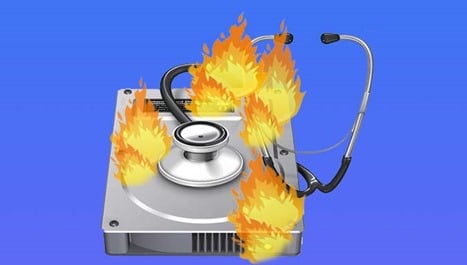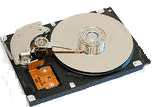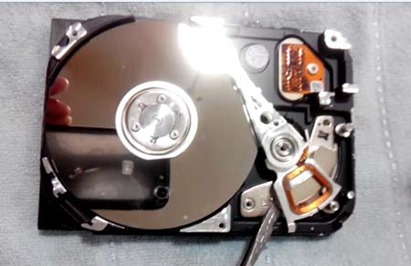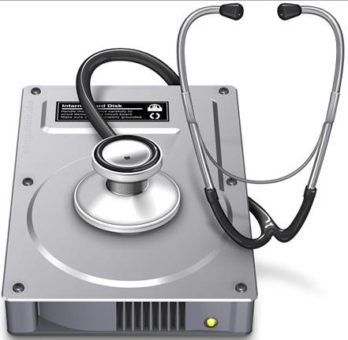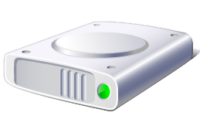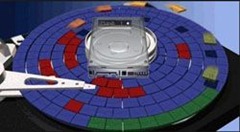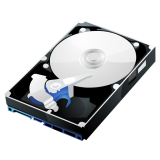Last updated on June 5th,>>>
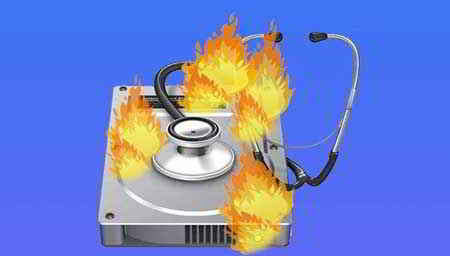
Hard drive failure is one of the most common and frustrating problems for computer users, but it’s also one of the easiest problems to recover from.
Hard Disk in a computer is the only component that is subjected to both electronic and mechanical stresses.
Before we go deeper into the most common factors that may cause a hard disk crash or failure. We must know that the life span of any electronic component is 4 to 5 years, at its best. May be more in very exceptional and rare cases depending on usage pattern.
Let’s compare the hard disk with a car, it’s a mechanical device. which means it has moving parts. Almost all the components in a computer are electronic. This means these components can only be damaged by electronic means, for example, a sudden power surge.
However, computer hard disks are subjected to both electronic/electrical and mechanical stresses. So this makes the hard disk the most delicate component of a computer.
If you are the careful type and using a Spike buster coupled with a good UPS, these two together in most cases will protect your delicate electronic components that include Hard disk from power surges.
Having said that lets now discuss the mechanical stresses that may cause hard disk failure.
Page Contents
Most Common Factors That may cause Hard Disk Failure:
1: Hard disks are mechanical devices, they have moving parts. So naturally hard disks are subject to wearing out. In about 60% to 70% of cases, hard disk failure occurs due to mechanical failure.
2: Your CPU unit may get bumped, moved, or fall from the table. This is the most dangerous situation if your system was running at the time.
3: A electronic motor constantly spins the platter of the hard disk when it’s running. The hard disk may fail due to bad bearings of this motor.
4: Since hard disk has mechanical components, extreme heating up may damage the electronic components of the circuit board. This is most likely to happen if your computer is not well ventilated. Check your CPU cabinet fans regularly.
5: Sudden power disruption when the read-write head of the hard disk is active. For example during file copy or transfer of files.
Warning Signs That Suggest Hard Disk Failure Is Imminent
Consider the following issues as warnings that a hard drive is about to fail
Computer Crashes Or Blue Screen Of Death (BSOD) – A classic Windows scenario. It could be due to many reasons, a driver mismatch, system file error, or even hard disk failure. If you experience frequent BSOD, its time to change the hard drive.
Error Messages While Copying Or Moving Files: Pay attention to this issue, this is not something that happens unless there are disk problems at hand. At the very least, it might be a good time to do a SMART test or do a disk check by going into Explorer, right-clicking on the problematic drive, clicking the Tools tab, and clicking the “Check” button.
Losing Files Without Notice: This can sometimes mean that your drive is having issues. A disk check again may help.
File Access Takes A Long Time: Modern hard drives are fast. If your system was made in the past 10 years, you shouldn’t be waiting for long periods of time for your file access or file transfer.
Noise – Most recently manufactured hard drives are quiet. If you hear any noise at all, particularly a clicking hard drive noise can mean the drive may be on its last legs. Do your best to back up whatever you can, or shut down the system and call an expert.
Types of Hard Disk Failure:
There are two main types of Hard disk Failure
1: Physical Failure: Since hard disk has mechanical components (moving parts). Hard disk failure can happen due to many factors that we have just discussed above.
2: Logical failure: This type of hard disk failure can happen due to file corruption. For example, accidentally deleting or modifying the Windows registry. Improper formatting or even a virus infection may cause logical hard disk failure.
However, these are correctable, by reformatting the hard disk and re-installation of the operating system.
Conclusion:
Hard disks are built to withstand the roughest handling. They just don’t give up on you without showing any signs, that it is failing. A detailed post and free tool How to know that the hard disk is failing? So you get enough time to buy a new one and save your data.

Hello! I am Ben Jamir, Founder, and Author of this blog Tipsnfreeware. I blog about computer tips & tricks, share tested free Software’s, Networking, WordPress tips, SEO tips. If you like my post /Tips then please like and share it with your friends.
